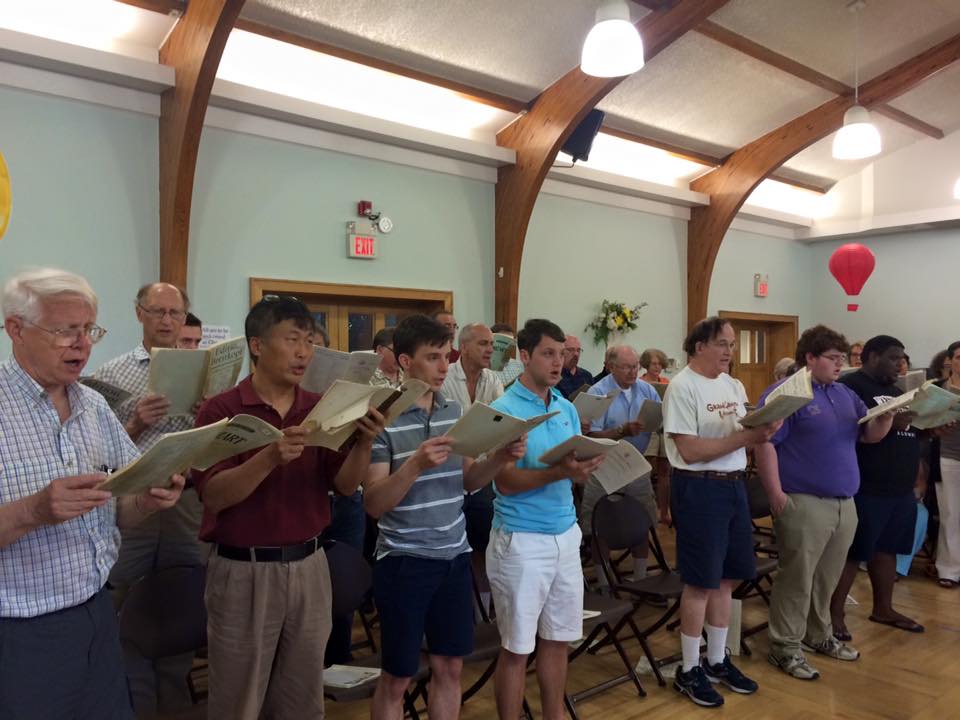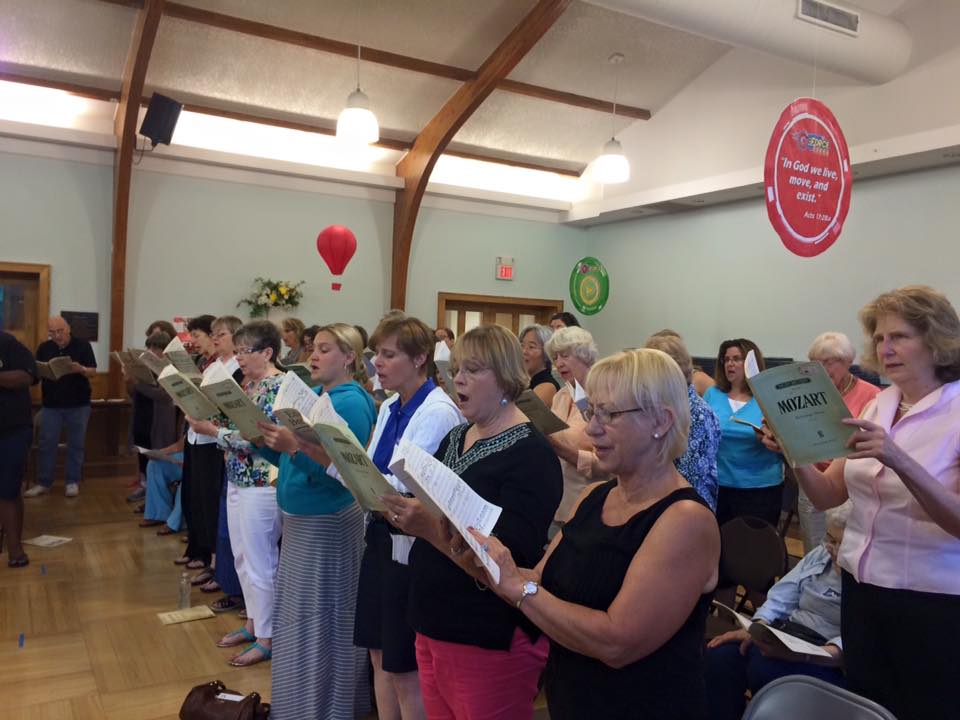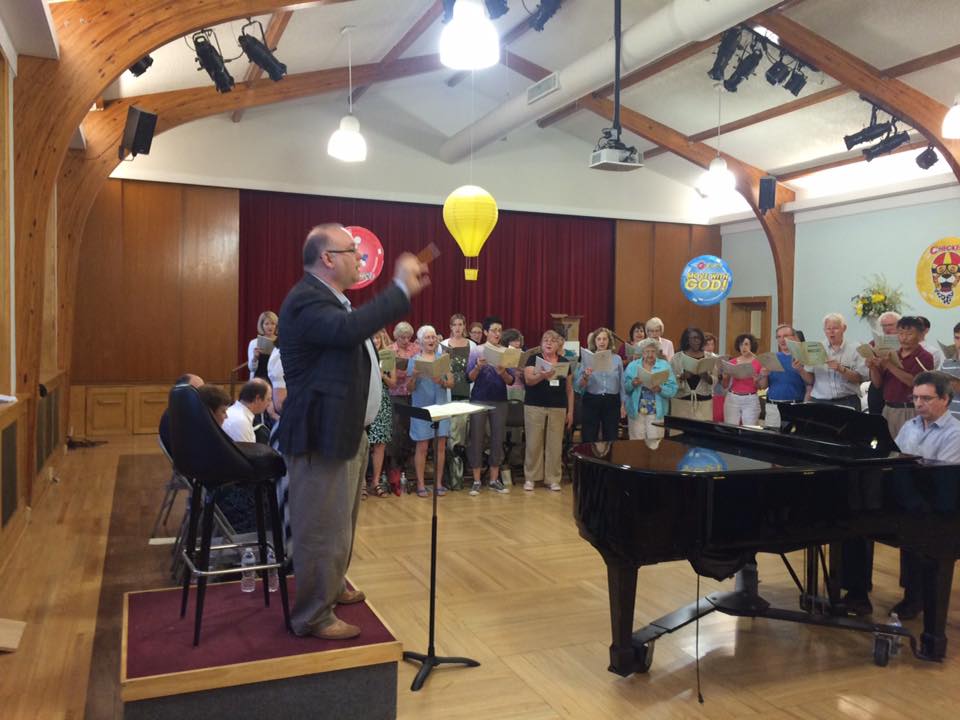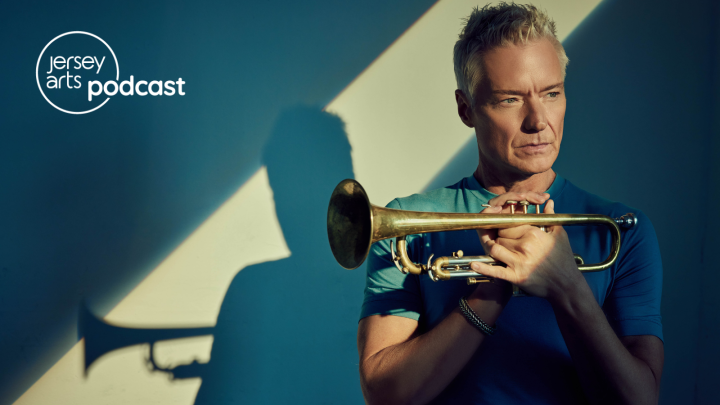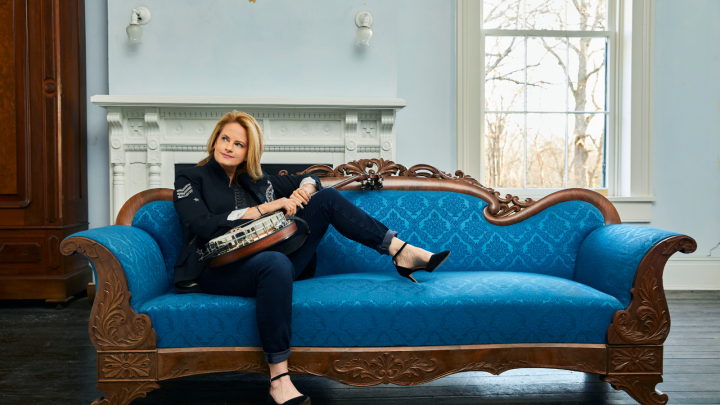Masterwork Chorus’ Summer Sings: Loving by Doing

If you’ve read any of my previous articles, I think it’s probably fairly obvious that I’m a life-long and passionate arts omnivore. Not only do I make my living in the opera field, but I love attending a wide array of performances, including dance, plays, musical theater, concerts and more. But what forms the foundation of my love for being an audience member is my background as a performer. But don’t go scrambling to locate my professional credits, because I have none. What began with school music and childhood ballet lessons developed into belonging to various community groups and adult open classes.
Why? It’s simple: I enjoy making art, especially as part of a community of like-minded folks, without the pressure of trying to make a career at it.
One of my favorite arts activities is singing – not as a soloist, but as part of a chorus. Despite technically being a soprano, when it comes to choral work, you’ll usually find me tucked in with the altos. As any good chorister knows, this is a case where the whole is greater than the sum of its parts. It’s a totally engaging experience, because to sing well in a chorus, you have to listen WHILE you’re singing – talk about multi-tasking! Executing well-written harmony lines, enriching and enhancing the melody, is truly gratifying work. (Truth be told, most choruses have a surplus of sopranos, so I enjoy trying to even the odds with the altos. It also helps that, in many choruses, the altos are positioned next to the basses and baritones, whom I truly adore.)
But it’s not always easy to commit to the regular schedule of rehearsals required of most chorus seasons. So, if you have a busy schedule and love to sing in a chorus, even if you haven’t done so in years, here’s your chance to get involved—if only for one evening.
On some upcoming Wednesday evenings (July 1, 8 and 15), Masterwork Chorus is running its Summer Sings, where anyone and everyone (including you!) is invited to come together and sing some of the great works of the choral canon, led by some of the area’s top conductors. Summer Sings take place at 7:30 p.m. at Chatham United Methodist Church, located at 460 Main Street (Route 124) in Chatham. Admission (including refreshments and loaner scores) is $15 for singers and $7.50 for students and listeners.
Two Summer Sings events have already occurred this season: Brahms’ “German Requiem” and Bernstein’s “Chichester Psalms” (June 17) and Mozart’s “Requiem” and “Coronation Mass” (June 24). But rather than be disappointed that you missed those, think of it this way: it’s the perfect time to catch this program in full swing and more than half of the season is still to come.
Here are the three remaining events:
July 1: a double feature of two Requiems – one by Fauré and the other by Rutter. (I always say: any day that you’re singing a Requiem, and not the object of it, is a good day.) The evening’s conductor is Anne Matlack, Artistic Director of the Harmonium Choral Society and Organist/Choir Director of Grace Church in Madison.
Requiems are Catholic Masses for funerals or in honor of the soul of a dead person. Many famous composers took the mostly Latin text and set it to music. Some were composed in honor of specific deceased people, while other composers seem to have just been drawn to the challenge of composing within that specific structure.
Gabriel Fauré composed his “Requiem in D Minor” between 1887 and 1890; he later revised it and finally finished it in 1900. It’s relatively short (about 35 minutes) and doesn’t seem to have been composed in honor of any particular person. It is scored for chorus, with soprano and baritone soloists.
John Rutter is a favorite 20th century composer of many choral singers. His Requiem, completed in 1985, also includes some English Psalms. (Rutter is English, so he’s added some Anglican touches to his piece.) This work is slightly longer than the Fauré, coming in at about 40 minutes and is scored for chorus and soprano soloist.
July 8: Haydn’s “Creation,” conducted by Sandor Szabo, Music Director of the Oratorio Society of New Jersey and Minister of Music at The Reformed Church of Bronxville, NY.
For this date, you’ll go in the Way Back Machine for Joseph “Papa” Haydn’s “Creation,” a masterful oratorio written between 1797 and 1798. It depicts and celebrates the creation of the world as described in the Book of Genesis and Milton’s “Paradise Lost.” The “Creation” is scored for soprano, tenor and bass soloists and chorus, and is structured in three parts.
It seems that Haydn was inspired to compose this work after a couple of visits to England where he heard some of Handel’s large-scale, impressive oratorios (think “Messiah”) and wanted to compose something of similar heft.
July 15: Mendelssohn’s “Elijah,” conducted by Ryan Brandau, Artistic Director of Princeton Pro Musica and Artistic Director of the Monmouth Civic Chorus.
If you haven’t figured it out by now, a LARGE chunk of the choral repertoire (at least the classical stuff) is technically religious. But with choruses, it’s just about always about the music – not evangelism.
Felix Mendelssohn’s “Elijah” premiered in 1846 and depicts events in the life of the Biblical prophet Elijah, taken from the Old Testament books 1 Kings and 2 Kings. Mendelssohn was also inspired by the Handel oratorios as well as those by Bach, and his “Elijah” was modeled on the oratorios of those two composers. Though, of course, being an early Romantic era composer, Mendelssohn’s “Elijah” reflects his more lyrical style.
This work is scored for four vocal soloists and a large chorus. For those of you who share my weakness for lower-voiced men, take note that the part of Elijah is sung by a bass-baritone.
So if that doesn’t convince you to take part in one (or all) of those Summer Sings, perhaps this will tip you over the edge— according to my fellow service organization colleagues at Chorus America, there are approximately 270,000 choruses in the U.S. and an estimated 32.5 million adults sing in choirs, so you have the opportunity to be among many friends.
And there’s a good chance that they will be good folks, too. Chorus America says that choral singers are better team players, have enhanced social skills and are reliable group participants. But you’ll want to think about being a regular member of a chorus, because they say that singing regularly in a choral group brings people together from different socio-economic, racial, cultural and religious backgrounds.
But Chorus America’s research just confirms truths that choristers (and those who study us) know very well. Remember the famous Coke commercial “I’d like to teach the world to sing in perfect harmony,” recently brought back to popular consciousness by the “Mad Men” finale? It’s no coincidence that the song was sung by a chorus – while soloists might get most of the glory, choruses get the fun (and hopefully world peace).
The Details
The Masterwork Chorus’ Summer Sings series meets on July 1, July 8 and July 15 (all Wednesdays) at 7:30 p.m. at the Chatham United Methodist Church, located at 460 Main Street (Route 124) in Chatham, NJ. Admission, which includes refreshments and loaner scores, is $15 for singers and $7.50 for students and listeners. Booklets of five tickets are available for $65 and tickets may be shared. Reservations are not needed. For more information, visit Masterwork’s website at www.masterwork.org or call (973) 455-7008.

